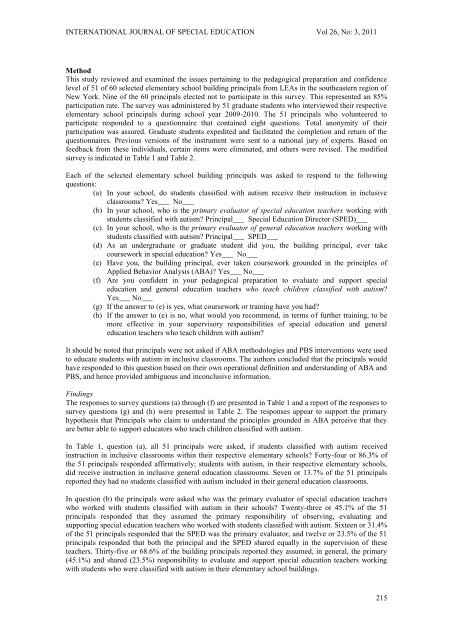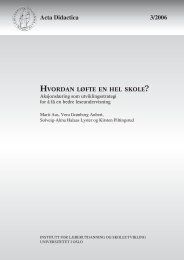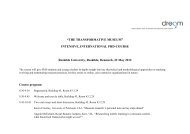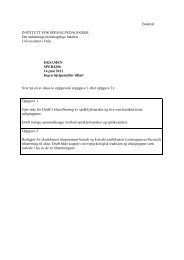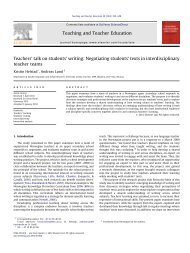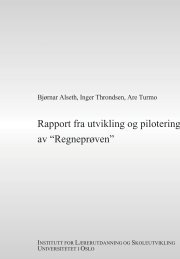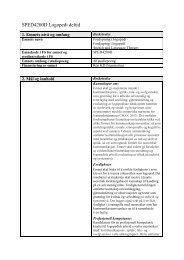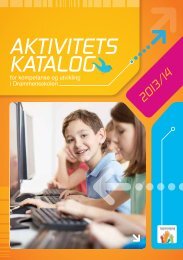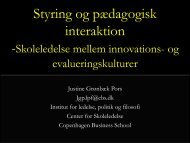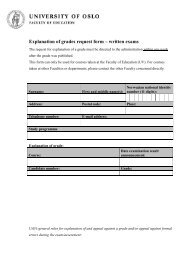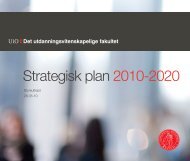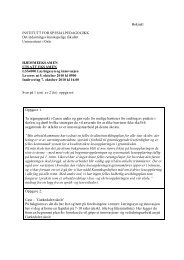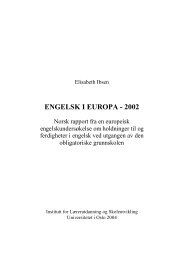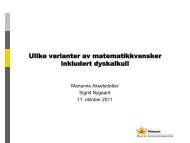International Journal Special Education
International Journal Special Education
International Journal Special Education
You also want an ePaper? Increase the reach of your titles
YUMPU automatically turns print PDFs into web optimized ePapers that Google loves.
INTERNATIONAL JOURNAL OF SPECIAL EDUCATION Vol 26, No: 3, 2011MethodThis study reviewed and examined the issues pertaining to the pedagogical preparation and confidencelevel of 51 of 60 selected elementary school building principals from LEAs in the southeastern region ofNew York. Nine of the 60 principals elected not to participate in this survey. This represented an 85%participation rate. The survey was administered by 51 graduate students who interviewed their respectiveelementary school principals during school year 2009-2010. The 51 principals who volunteered toparticipate responded to a questionnaire that contained eight questions. Total anonymity of theirparticipation was assured. Graduate students expedited and facilitated the completion and return of thequestionnaires. Previous versions of the instrument were sent to a national jury of experts. Based onfeedback from these individuals, certain items were eliminated, and others were revised. The modifiedsurvey is indicated in Table 1 and Table 2.Each of the selected elementary school building principals was asked to respond to the followingquestions:(a) In your school, do students classified with autism receive their instruction in inclusiveclassrooms? Yes___ No___(b) In your school, who is the primary evaluator of special education teachers working withstudents classified with autism? Principal___ <strong>Special</strong> <strong>Education</strong> Director (SPED)___(c) In your school, who is the primary evaluator of general education teachers working withstudents classified with autism? Principal___ SPED___(d) As an undergraduate or graduate student did you, the building principal, ever takecoursework in special education? Yes___ No___(e) Have you, the building principal, ever taken coursework grounded in the principles ofApplied Behavior Analysis (ABA)? Yes___ No___(f) Are you confident in your pedagogical preparation to evaluate and support specialeducation and general education teachers who teach children classified with autism?Yes___ No___(g) If the answer to (e) is yes, what coursework or training have you had?(h) If the answer to (e) is no, what would you recommend, in terms of further training, to bemore effective in your supervisory responsibilities of special education and generaleducation teachers who teach children with autism?It should be noted that principals were not asked if ABA methodologies and PBS interventions were usedto educate students with autism in inclusive classrooms. The authors concluded that the principals wouldhave responded to this question based on their own operational definition and understanding of ABA andPBS, and hence provided ambiguous and inconclusive information.FindingsThe responses to survey questions (a) through (f) are presented in Table 1 and a report of the responses tosurvey questions (g) and (h) were presented in Table 2. The responses appear to support the primaryhypothesis that Principals who claim to understand the principles grounded in ABA perceive that theyare better able to support educators who teach children classified with autism.In Table 1, question (a), all 51 principals were asked, if students classified with autism receivedinstruction in inclusive classrooms within their respective elementary schools? Forty-four or 86.3% ofthe 51 principals responded affirmatively; students with autism, in their respective elementary schools,did receive instruction in inclusive general education classrooms. Seven or 13.7% of the 51 principalsreported they had no students classified with autism included in their general education classrooms.In question (b) the principals were asked who was the primary evaluator of special education teacherswho worked with students classified with autism in their schools? Twenty-three or 45.1% of the 51principals responded that they assumed the primary responsibility of observing, evaluating andsupporting special education teachers who worked with students classified with autism. Sixteen or 31.4%of the 51 principals responded that the SPED was the primary evaluator, and twelve or 23.5% of the 51principals responded that both the principal and the SPED shared equally in the supervision of theseteachers. Thirty-five or 68.6% of the building principals reported they assumed, in general, the primary(45.1%) and shared (23.5%) responsibility to evaluate and support special education teachers workingwith students who were classified with autism in their elementary school buildings.215


